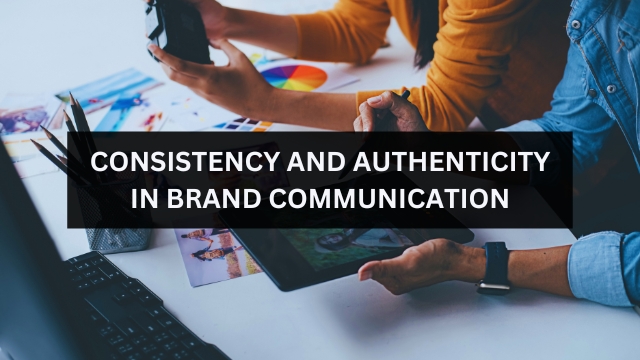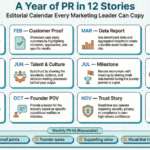Introduction
In today’s digital age, 97% of consumers research products and services online before making a purchase decision. This statistic underscores the critical importance of personal branding for entrepreneurs. As the face of your business, your personal brand can be the difference between obscurity and industry leadership. This article explores how entrepreneurs can leverage their expertise to build influence and trust, ultimately driving success in their ventures. We’ll delve into the evolution of personal branding, strategies for showcasing expertise, and methods for building lasting trust with your audience.
1: Background/Context
Personal branding has evolved significantly since the term was first coined by Tom Peters in 1997. Initially, it was primarily associated with celebrities and high-profile executives. However, the rise of social media and digital platforms has democratized personal branding, making it accessible and essential for entrepreneurs at all levels.
Recent trends show a shift towards authenticity and value-driven branding. According to a 2022 Edelman Trust Barometer report, 88% of consumers say that trust is a crucial factor in their purchasing decisions. This highlights the growing importance of building a personal brand that not only showcases expertise but also fosters trust and credibility.
Latest research from LinkedIn indicates that individuals with strong personal brands are 14 times more likely to be approached with business opportunities compared to those without a distinct online presence. This underscores the tangible benefits of investing in personal branding for entrepreneurs.
2: Showcasing Expertise Through Content Creation

The first key to leveraging your expertise is through strategic content creation. By consistently producing high-quality, valuable content in your niche, you position yourself as a thought leader and go-to resource in your industry.
Content creation can take various forms, including blog posts, videos, podcasts, and social media updates. The key is to focus on topics that align with your expertise and provide genuine value to your audience. For example, Neil Patel, a renowned digital marketing expert, built his personal brand by consistently publishing in-depth guides and case studies on his blog, which now attracts millions of visitors monthly.
A study by Content Marketing Institute found that 96% of the most successful content marketers agree that their audience views their organization as a credible and trusted resource. This underscores the power of content in building trust and authority.
Real-world example: Gary Vaynerchuk, entrepreneur and internet personality, built his personal brand by creating daily content across multiple platforms. His #AskGaryVee show, where he answers business questions from his audience, has become a cornerstone of his brand, showcasing his expertise and building trust with his followers.
3: Leveraging Social Proof and Networking
The second crucial aspect of personal branding is leveraging social proof and strategic networking. Social proof, in the form of testimonials, case studies, and endorsements, can significantly boost your credibility and influence.
According to BrightLocal’s Local Consumer Review Survey, 91% of consumers say that positive reviews make them more likely to use a business. For entrepreneurs, this translates to actively seeking and showcasing client testimonials and success stories.
Networking, both online and offline, is equally important. Collaborating with other experts in your field, speaking at industry events, and participating in relevant online communities can expand your reach and reinforce your expertise.
Supporting evidence: A study published in the Journal of Business Venturing found that entrepreneurs with larger and more diverse networks were more likely to succeed in their ventures.
Real-world example: Marie Forleo, business coach and author, has built a powerful personal brand by leveraging both social proof and networking. Her website features numerous success stories from her students, and she regularly interviews high-profile guests on her MarieTV show, expanding her network and reinforcing her credibility.
4: Consistency and Authenticity in Brand Communication

The third pillar of effective personal branding is maintaining consistency and authenticity in all brand communications. Consistency helps in building recognition and trust, while authenticity fosters genuine connections with your audience.
A study by Lucidpress found that consistent brand presentation across all platforms can increase revenue by up to 23%. For entrepreneurs, this means maintaining a cohesive message, visual identity, and tone of voice across all touchpoints – from your website to your social media profiles and in-person interactions.
Authenticity is equally crucial. According to a survey by Stackla, 86% of consumers say authenticity is important when deciding what brands they like and support. This means being true to your values, openly sharing your journey (including failures), and engaging genuinely with your audience.
Real-world example: Richard Branson, founder of Virgin Group, has built a powerful personal brand based on consistency and authenticity. His adventurous, rule-breaking persona is consistently portrayed across all platforms, and he’s known for his candid sharing of both successes and failures.
Frequently Asked Questions (FAQ)
Q1: How long does it take to build a strong personal brand?
A1: Building a strong personal brand is an ongoing process, but you can start seeing results in 6-12 months with consistent effort. A recent study by BrandYourself found that 85% of people who invested in personal branding saw significant benefits within a year.
Q2: Is personal branding only important for online businesses?
A2: No, personal branding is crucial for all entrepreneurs, regardless of their business model. Even for brick-and-mortar businesses, 97% of consumers use online media when researching local products and services (BIA/Kelsey and ConStat).
Q3: How can I measure the success of my personal branding efforts?
A3: Key metrics include website traffic, social media engagement, speaking opportunities, media mentions, and ultimately, business growth. Tools like Google Analytics, social media insights, and brand monitoring software can help track these metrics.
Q4: Can personal branding replace traditional marketing for my business?
A4: While personal branding is powerful, it should complement rather than replace traditional marketing. A holistic approach that combines personal branding with other marketing strategies often yields the best results.
Conclusion
In conclusion, personal branding is an indispensable tool for entrepreneurs looking to build influence and trust in today’s competitive business landscape. By showcasing expertise through content creation, leveraging social proof and networking, and maintaining consistency and authenticity, entrepreneurs can create a powerful personal brand that drives business success.
As we move further into the digital age, the importance of personal branding is only set to increase. Entrepreneurs who invest in building and nurturing their personal brand today will be well-positioned to reap the benefits in the future.
If you found this article valuable, we encourage you to implement these strategies in your own personal branding efforts. Share this article with fellow entrepreneurs who might benefit from these insights, and don’t hesitate to leave comments or questions below. Your personal brand journey starts now – make it count!
Author Profile

- Nitin Jain - C.E.O - India PR Distribution
- Nitin Jain is the founder and C.E.O of India PR Distribution - India's top Press Release Distribution and PR Agency. Nitin has more than 20 years of experience in PR, Corporate Communications, Digital Marketing, Branding Strategy and Lead generation.
Latest entries
 Press releaseJanuary 31, 2026A Year of PR in 12 Stories: The Editorial Calendar Every Marketing Leader Can Copy
Press releaseJanuary 31, 2026A Year of PR in 12 Stories: The Editorial Calendar Every Marketing Leader Can Copy EntrepreneursJanuary 5, 2026Nitin Jain Entrepreneur Behind India PR Distribution Success
EntrepreneursJanuary 5, 2026Nitin Jain Entrepreneur Behind India PR Distribution Success Press releaseNovember 20, 2025Meet Nitin Jain: CEO of India PR Distribution
Press releaseNovember 20, 2025Meet Nitin Jain: CEO of India PR Distribution Search OptimizationSeptember 16, 2025What Is Digital PR and Why It Matters for SEO Success
Search OptimizationSeptember 16, 2025What Is Digital PR and Why It Matters for SEO Success

